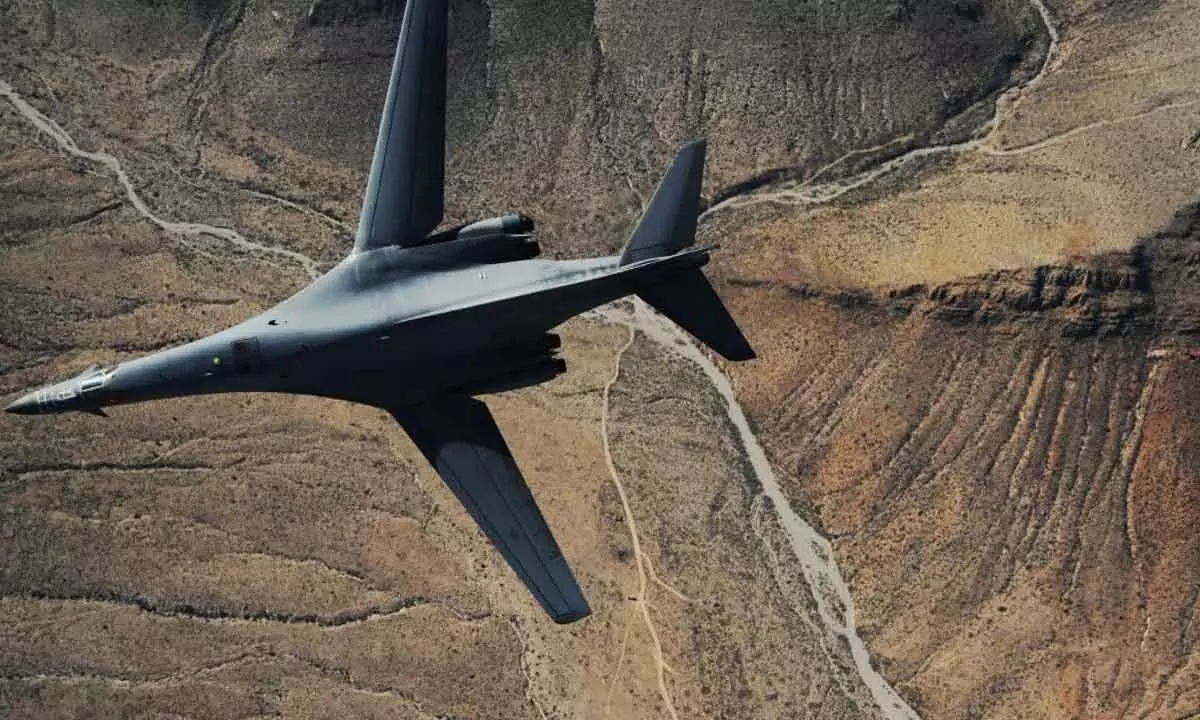The importance of air power in winning future warfare
Military experts from different countries at 4th Manama Air Power Symposium talks about regular and irregular warfare and how these threats could be dealt
image for illustrative purpose

The refrain at the fourth Manama Air Power Symposium (MAPS) 2022 was that absolute air power is critical to winning future warfare which is going to be challenging, changing and dynamic. Military experts from different countries talked about regular and irregular warfare and how these threats could be dealt with intelligence, integration of forces, induction of new technologies both manned and unmanned and partnerships.
In his speech, the Commander of the Royal Bahraini Air Force Major General Shaikh Hamad bin Abdullah Al Khalifah, said, The widespread unmanned suicide weapons and the use of hybrid warfare through cyberattacks affect governments, economy and health institutions in some countries, in addition to the emergence of hypersonic weapons technology capable of evading the current air defense systems has all become a clear threat to international security and stability, especially if these weapons fall into the hands of terrorist groups through some countries.
He added that this development is nothing but steps forward towards future wars, "that our countries are facing, and the integration of these technologies into armed conflicts will put pressure on political and military decision-makers in various countries and will lead to changing the strategic balance of military deterrence. In order to maintain security, stability, and prosperity all peace-seeking countries must prevent the proliferation or development of nuclear weapons and unconventional weapons," Al Khalifah said.
Speed, connectivity and absolute intelligence, need of the hour
General Gary North, Vice President for Customer Requirements, Lockheed Martin, who moderated the first session highlighted how air power mattered in modern day warfare and referred to the Ukraine-Russia conflict where the former is strapped for want of air power. The world today is generated by speed, connectivity, and absolute intelligence and coalition forces need to know where the adversary is and this is a big challenge. Speed of innovation between government, military, industry and academia is urgent to deter today's threats which exist on land, sea, air and cyberspace. "We need to operate in the domain of time. We must be ahead of time and 'ahead of ready' is the approach militaries need to take."
Integration of platforms critical
Major General David A Harris, Deputy Commander of Ninth Air Force and Deputy, Combined Forces Air Component Commander, US Central Command, talked about how training, upgrades and better coordination are important as technologies keep evolving. Highlighting the significance of communication, data sharing between aircraft and personnel, he said 5th generation aircraft is heavily centred on data which needs to be not only secured but also communicated effectively between relevant stakeholders. Joint training and integration of platforms and personnel are essential to deal with future battle scenarios, even while technologies keep maturing rapidly.
Counter UAS operations
Air Marshal Martin Sampson, UK Defence Senior Adviser for Middle East and North Africa, talked about the strong and long relationship between the two Kingdoms and the need to build upon it. He said the changing nature of battlespace called for collaboration not just industrially but also in thinking. The threat posed by UAS is well known, seen predominantly now in Europe, he said and mentioned how adversaries deploy counter measures to defeat C-UAS systems which are known for precision, range lethality and stealth.
Directed energy weapons not a panacea solution to C-UAS Air Marshal Sampson mentioned that directed energy weapons (DEWS) will not offer a panacea solution to the C-UAS challenge but is a critical element of future IAMD (integrated air and missile defense) in C-UAS. The challenges of DEWS are that they are cost prohibitive and militaries have to plan way ahead of budgeting cycles. Employment of DEWS will change the nature of military structures but presently there is lack of understanding and that commanders need education on the same, besides training and technical specifications for military operations.
War is terrorism with a bigger budget
Brigadier General Abdulla Alnoaimi, Air Police Commander, Royal Bahrain Air Force and Col. Ali Mahmoud, Bahrain Delegate in Islamic Military Counter Terrorism Coalition, made a joint presentation where they mentioned how 'war is terrorism with a bigger budget'. Given $50 million any adversary could buy 100 off the shelf cruise missiles or 100 recon UAVs or 15 tactical ballistic missiles or 10 utility helicopters or four attack helicopters or two fixed wing fighters. They said the economic impact of terrorism is strongest in Afghanistan, Syria, Nigeria, Burkano Faso, Mali, Somalia, Iraq and Yemen in that order and one needs to be situationally aware and take measures both to defend and attack to check the spread of such activities.

